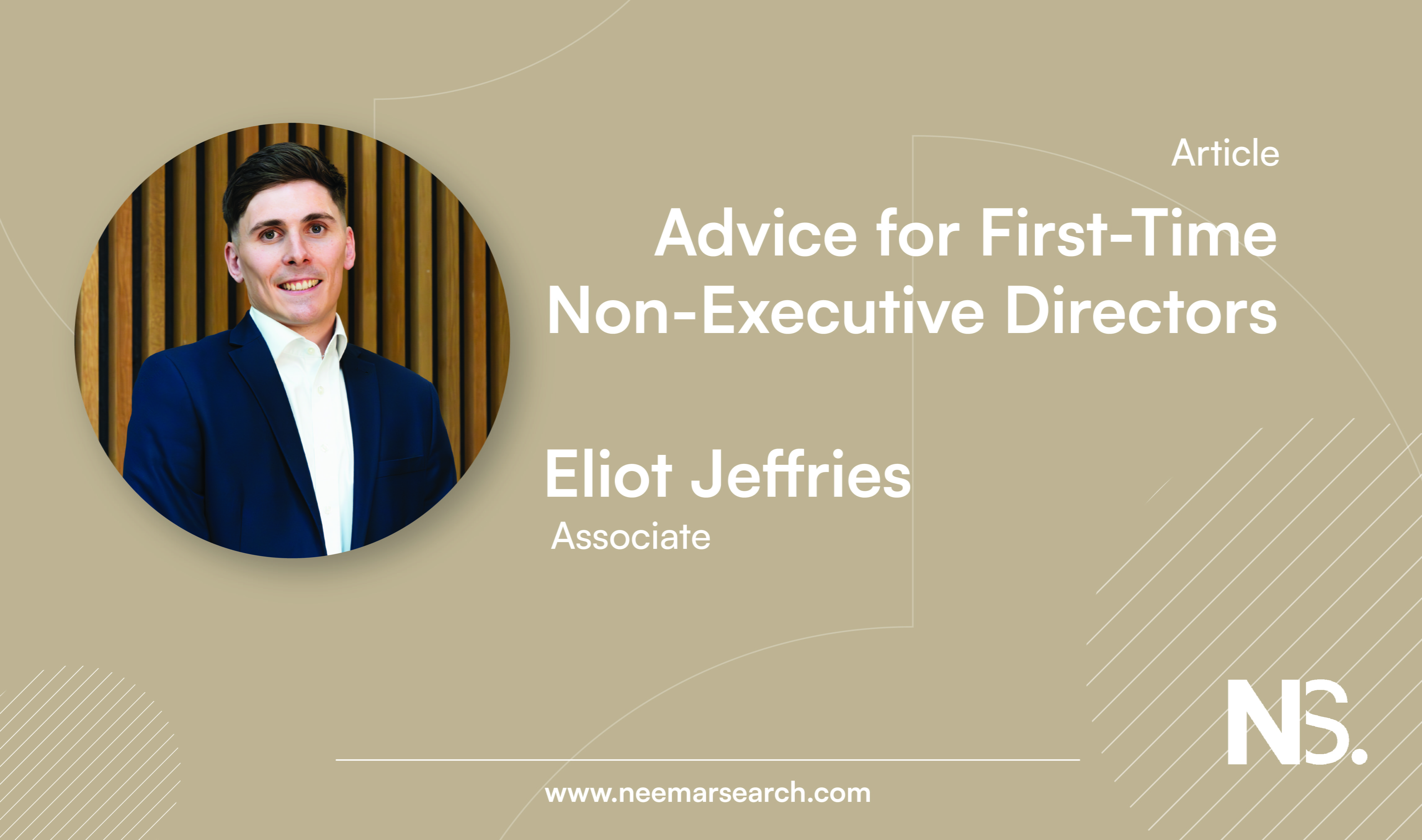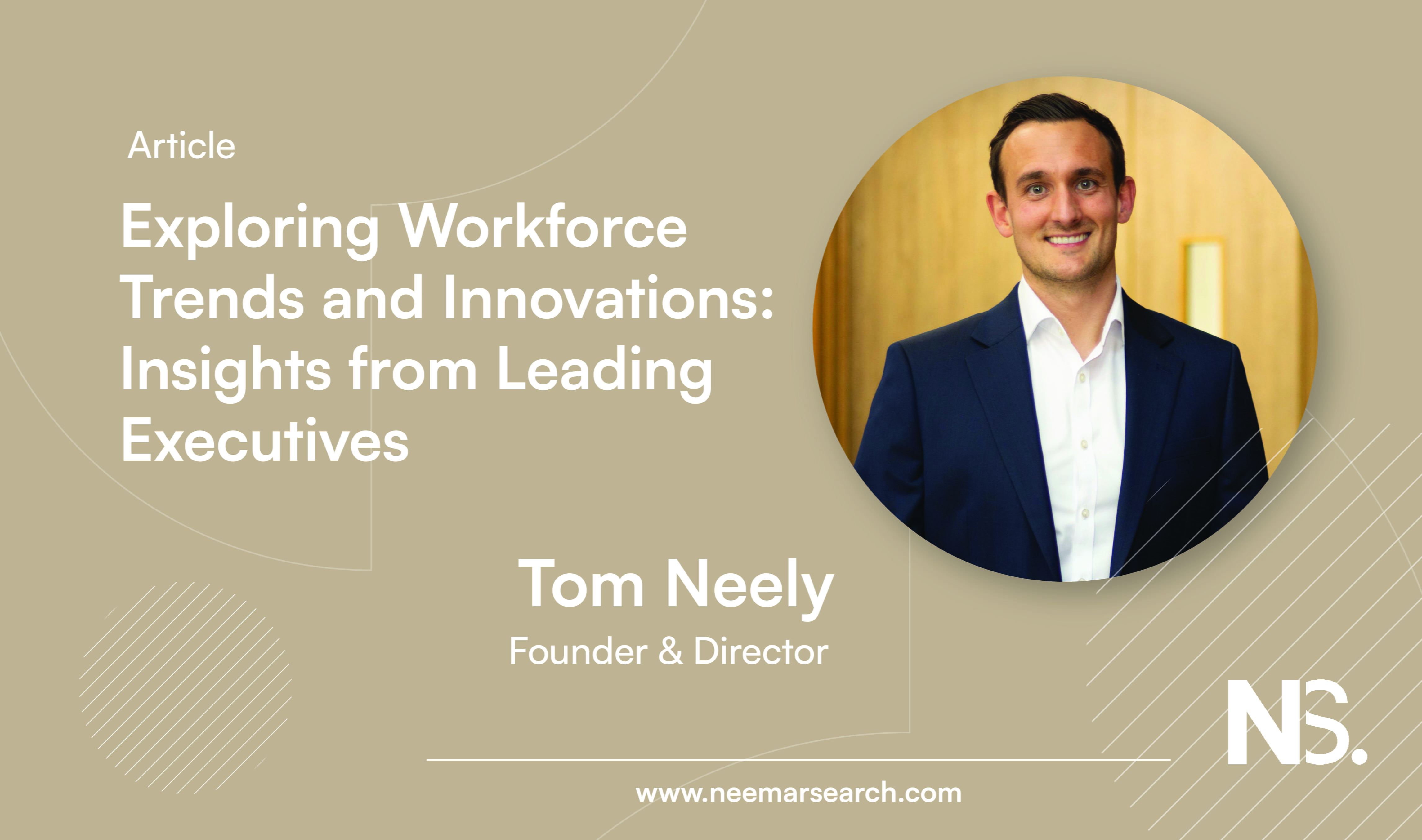
The Housing Collective: Assembling an Empowering Executive Team
08 Nov, 20236 min
In this second post exploring our recent Housing Collective podcast with Charlie Norman, CEO of MSV Housing and chair of Greater Manchester Housing Providers, we discuss how important it is for CEOs to form a reliable and trustworthy executive team around them, and what can be done to retain these experts once they’re onboard.
In the fifth episode of our Housing Collective podcast, delivered in partnership with crowdfunding platform Beam, Neemar Search founder Tom Neely caught up with Charlie Norman, CEO of MSV Housing and chair of Greater Manchester Housing Providers. This second exploration of our conversation with Charlie sees us discussing the importance of having a knowledgeable team of executives who can be relied on.
Alongside this, we also dig into how you can retain these experts, highlighting some practical tips for retaining your best staff once they’re working with your organisation.
The Importance of a Knowledgeable and Reliable Executive Team
In her role as CEO, Charlie has, of course, worried about her strengths—whether she’s speaking to colleagues at an industry conference or chatting with residents in Moss Side about their housing needs, she recognises that situations like these are scary for most people, even executives.
Whilst she urges that “...it’s not about you, or how you feel about yourself, it’s about what you’re saying and the people you’re talking to,” the figures speak for themselves. Women are more likely to experience imposter syndrome within the workplace, particularly when it comes to senior and executive-level roles, with 72% of female respondents to a OnePoll-led survey commenting that they experience self-doubt around their jobs. This is something Charlie is all too familiar with:
“...Sometimes you get up and think, ‘Am I doing this right?’... I realise that this job—it is about homes, but is also very much about people. The people that live in our homes and neighbourhoods, but also the people that work for us.”
Her comments highlight that even the world’s greatest leaders couldn’t possibly be expected to know everything there is to know about the fine-grained details of their companies—indeed, that’s why they hire people. Often, however, aspiring and new Chief Executives have a tendency to think that they have to know everything and control everything.
Learning how to defer to the expertise of those around you and trusting their knowledge is crucial, as Charlie highlights in our podcast. As a CEO, you’re only as good as the people around you. This could be leaning on the expertise of consultants when it comes to addressing a particular issue or forming an executive team around you to deal with the numerous challenges that arise as part of the Chief Executive position.
But how can a new CEO be certain they’re getting the best people on board when they’re hiring for these roles? Charlie advises on a handful of practical interview techniques that Chief Executives can use to gauge the skills and values that are crucial to success within the housing sector:
First and foremost, are they motivated? Your opening questions should focus on what drives the executive you’re interviewing—what was the moment in their life that made them think they wanted to not only work in housing but become a leader within the sector?
Are they resilient? As noted in our first post on this podcast, resilience is a key leadership quality that executives must develop. Asking questions about their failures, difficult situations, or circumstances that meant they needed to adapt or change their way of working can provide ample evidence of whether they’re up to the challenges that arise in the housing industry.
What do they think others will say about them? When interviewing an executive, asking them what they honestly believe their referees or colleagues are likely to say about them to an external party such as a hiring manager can be illuminating.
Do they possess problem-solving skills? The executive team that a new CEO surrounds themselves with must be able to adapt and respond to the issues that might arise, so it’s important to be certain they’re up to the task.
How do they lead? The executive team's role isn’t only to assist the CEO with their responsibilities but to ensure that the departments they’re tasked with supporting are helped to achieve their goals. Discovering what a potential executive hire has done to uplift their community or colleagues can illustrate how they’ll fit in with your organisational culture.
Answering these questions can give new CEOs the confidence to know that their team is all pulling towards the same goal—that they all believe in the organisation’s mission.
Retaining Your Best Staff
Assembling a dependable, highly-skilled executive team is arguably the easy part—the difficulty comes in retaining them once they’re onboard. Building trust early is vital, which isn’t to say that CEOs should be surrounding themselves with yes-men. Instead, it means having the ability to professionally challenge each other to achieve the best possible outcome whilst respecting the unique skills and experience that each executive team member brings to the table.
This focus on trust and respect can even shift an organisation's entire culture, helping foster an environment of knowledge-sharing and avoiding the formation of siloes. As Charlie highlights:
“Culture eats strategy for breakfast… You can have the best strategies in the world… but at the heart of that is creating the right conditions and having the right culture for the organisation.”
The sense of 'togetherness' holds significance given the obstacles encountered by the housing industry. It can serve as a competitive edge in the effort to retain top-tier employees across all areas of an organisation, extending beyond just the executives.
It’s crucial that CEOs are ready to delegate tasks to their executive team and trust that they can get them done. As Charlie highlights in the course of our discussion:
“I think letting go, understanding, and trusting people… within your team is really important. Try to understand the lived experience of others… This job is about people.”
Chief Executive Officers within the housing industry can’t expect to be able to do everything required to run a social housing provider or housing association alone. It’s important that they’re putting processes and attitudes in place that will enable them to hold on to their executive team and succeed in achieving their mission.
Specialist Housing Executive Search Firm
Whether you’re a candidate making a career change or you’re a business leader searching for a seasoned expert within the housing industry, Neemar Search is here to support you.
If you’re interested in learning more about the challenges facing the housing sector or you’re searching for more leadership lessons, join the Housing Collective Newsletter for the latest expert insights.
We’re dedicated to partnering with leading not-for-profit housing associations, local authorities, arms-length management organisations (ALMOS), and for-profit enterprises to drive change within the industry through executive staffing solutions. Whether you require recruitment expertise within corporate or customer services, asset management, development, or finance, we can help you make an impact.
Contact us to learn more about our specialist hiring services within the housing industry.


